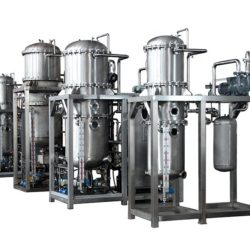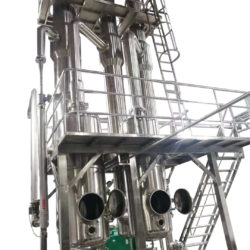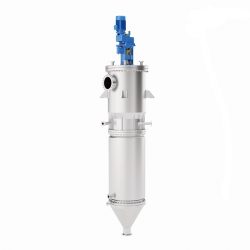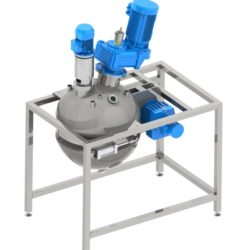Evaporators
Evaporators are essential devices used to transform liquid into vapor through the application of heat. They play a critical role in various industrial processes, including refrigeration, air conditioning, desalination, and chemical manufacturing. The primary function of an evaporator is to absorb heat from its surroundings or a heat source. This causes the liquid to evaporate and leaving behind a concentrated solution or solid residue.
In refrigeration and air conditioning, evaporators are responsible for absorbing heat from the environment. Also, this cools the air or refrigerant. In addition, this process involves a liquid refrigerant entering the evaporator coil. This is where it absorbs heat and evaporates, turning into a gas. Furthermore, the cooled gas then continues through the refrigeration cycle. This provides cooling to the desired area.
In industrial applications, such as desalination or food processing, evaporators are used to concentrate solutions by removing water or other solvents. In addition, the liquid is heated in the evaporator until it reaches its boiling point. Finally, this causes the solvent to evaporate and leaving behind a concentrated product.
Evaporators come in various designs, including natural circulation, forced circulation, falling film, rising film, and plate evaporators, each suited for specific applications and types of liquids. The choice of evaporator depends on factors like the nature of the liquid, desired concentration levels, energy efficiency, and operational requirements.
Overall, evaporators are vital in many sectors, providing efficient and effective means of liquid concentration and heat transfer, contributing to processes that range from environmental control to industrial manufacturing.
Showing all 4 results




